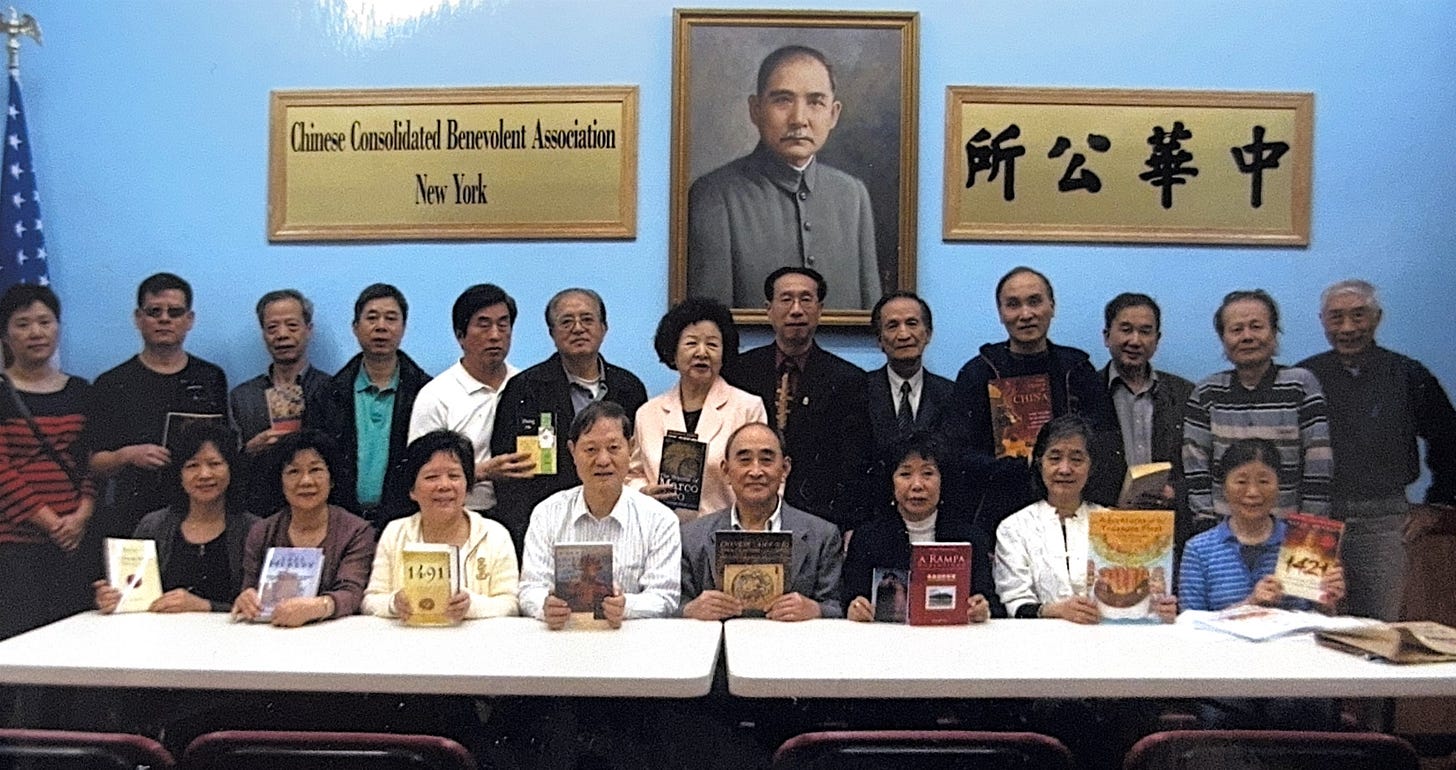New York Society as bridge between civilisations
The Zheng He Society, though modestly named, spans continents — from Asia to the Americas

IN AN ERA when European explorers sailed under banners of conquest, Admiral Zheng He’s 15th-century voyages charted a different course — one of cultural exchange and diplomacy.
For Sulia Chan, president of the Zheng He Society of New York, this legacy is both a scholarly pursuit and a personal calling.
A personal connection to history
Born in Quanzhou, China — Zheng He’s departure port — Chan grew up immersed in the admiral’s story. “In fifth grade, I learned he sailed seven times to Africa’s Cape of Good Hope!” she recalls.
Her passion for learning was also inspired by her hometown’s own rich history. Quanzhou’s famous residents include Chen Gong, who reclaimed Taiwan from Dutch colonisers, as well as Lin Zexu, who made a stand against British imperialism by burning opium.
Later, as a teacher in New York, she wove these narratives into her work. She spoke with fond memories of her teaching career in public schools and Baruch College in New York. She also lectured as far as UC Berkeley in California.
“I never applied for jobs,” she laughs. “People just called: Can you teach? So I did — languages, social sciences. But always, I studied Zheng He.”
Zheng He Society: A global network
Chan’s society, though modestly named, spans continents. “We don’t call it international,” she clarifies, “but after our first conference in Taiwan, (we also met in) Malacca, then Berkeley, Dubai … I have friends everywhere.”
** SALUTING THE LEGEND. Click here to read our editorial and links to the main stories of the NAC Focus on Zheng He
Among them is Brazilian researcher Fausto Guimaraes, who credits Chan as “the gateway to this new world.” Their collaboration highlights Zheng He’s potential reach to Brazil — a theory Guimaraes explores through Santinho Beach’s rock art.
“He saw Mazu (the sea goddess) where others saw just stones,” Chan marvels. “He loves China more than me!”
Diplomacy versus domination
Chan contrasts Zheng He’s missions with European colonialism. “Columbus thought the Bahamas was India! (And) now they call Native Americans ‘Indians’!” she exclaims. Zheng He, by contrast, “never interfered”.
“Zheng He helped,” she emphasises. “In Africa, in Brazil — he caught pirates! Brought peace (to the natives).”
For Chan, Zheng He’s spirit endures in projects like the Princess Taiping, a replica ship built in Quanzhou. “It sailed to Hawaii, San Francisco … just like Zheng He!” she says. Such connections inspire her advocacy.
“History isn’t static. If people have a heart, they’ll reconnect,” she stated. Chan’s mission remains clear: to champion Zheng He’s vision of harmony — one that transcends borders, both then and now. - Anansa Jacob
All articles, opinions, and events featured in NAC Focus represent the views of the interviewees, individual writers and contributors, and do not necessarily reflect those of NAC Focus. While we strive to ensure all information on this post is accurate, complete, and current, NAC Focus is not responsible for any errors, omissions, or outdated content.
Click here to view the programme for the conference on Voyages@Frontiers of New Asia of the Commonwealth of World Chinatowns (CWC), Sept 3-8, 2025, Jen Hotel, Penang, Malaysia
